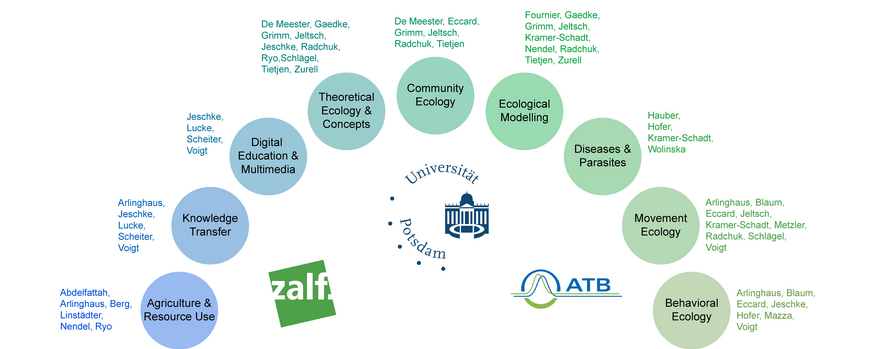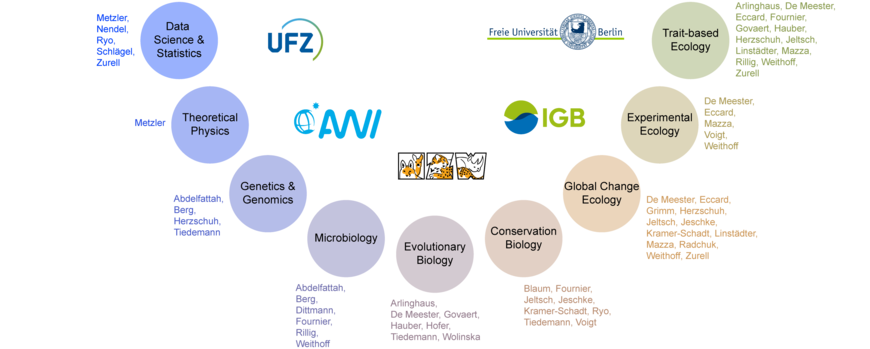Our Mission
The Anthropocene is characterized by an unprecedented loss of biodiversity. This biodiversity loss can be clearly attributed to human-induced global changes such as land use change, climate change, or invasions of non-native species. These changes increasingly lead to non-equilibrium and non-stationary dynamics, and transitions of ecological systems. Since the functionality of the biosphere is essential for nature and humanity alike, it is crucial to understand underlying processes, and to reliably predict and manage biodiversity and ecosystem changes.
Currently, our understanding of ecological processes under the pressure of global change is rather limited because common ecological concepts are based on averaging approaches for populations or communities. However, we know that it is variation among individuals that often accounts for how species respond to sudden changes, and thus ultimately determines biodiversity and ecosystem resilience.
Our goal is therefore a shift in paradigm, from classical "averaging ecology" to an individual-based ecology. We test classical ecological concepts through the lens of an individual-based ecology, and extend or replace them where necessary. Our research focuses on the individual to understand, predict, and manage processes at higher organizational scales such as populations, species communities, and ultimately ecosystems.
We pursue our goals with a multi-taxa and multi-disciplinary research approach that thrives on the collaboration of scientists from various disciplines and institutions.


Biological research is the basis of our network, spanning molecular to ecosystem level, evolutionary lab experiments to field observations and ecosystem modelling, development of concepts to applied nature conservation. In addition, our network is strengthened by integrating research areas such as theoretical physics, data science, artificial intelligence, or digital education.
Our research benefits from long-established and new collaborations between universities and non-university research institutions from the area around Potsdam. Thanks to our close collaboration, we profit not only from shared use of infrastructure, but also through the use of different methodological approaches and complementary specialized cutting-edge research in almost all ecosystems occurring worldwide.
